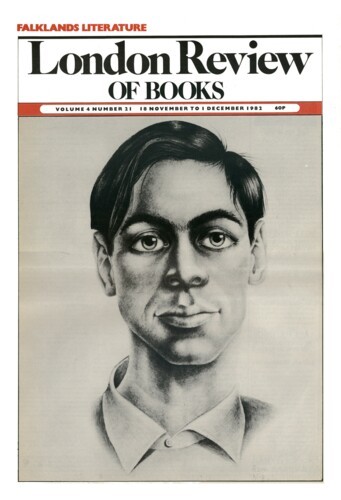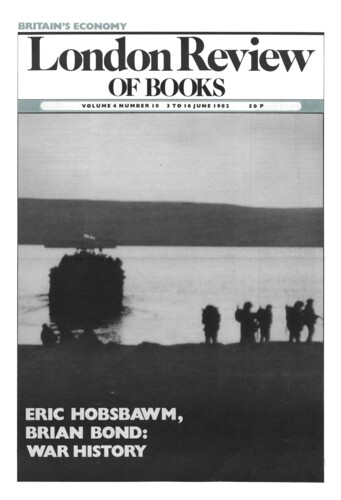In April 1935, with the staple industries stagnating and over two million people out of work, Harold Macmillan rose in the Commons to press for a radical policy of industrial reconstruction and public investment. What, he asked, were the arguments against public capital expenditure? ‘What is the case of the Treasury, the people who really govern England from the Box that is outside?’ His answer was that the Treasury was immobilised by fear of ‘artificial’ expansion, a consequent collapse and an increased burden of debt. As an answer it hardly did justice to the agile complexity of the Treasury’s slightly precarious commitment to economic and fiscal orthodoxy. But it adequately reflected what has since become the thinking man’s prejudice on the subject: that an increase in public expenditure (without a matching increase in taxes) could only have ameliorated Britain’s economic misery between the wars; and that the principal obstacles to a Keynesian (or Lloyd-Georgian or Mosleyite) recovery programme were the prejudice and ignorance of the Treasury knights, who, again in Macmillan’s words, ‘see the error which may be committed by doing something, and therefore…say “let us commit the crowning error of not doing anything at all.” ’
Getting and Spending: Public Expenditure, Employment and Inflation by Leo Pliatzky. Inside the Treasury by Joel Barnett. Public Expenditure and Social Policy: An Examination of Social Spending and Social Priorities edited by Alan Walker. In April 1935, with the staple industries stagnating and over two million people out of work, Harold Macmillan rose in the Commons to press for a radical policy of industrial reconstruction and...


